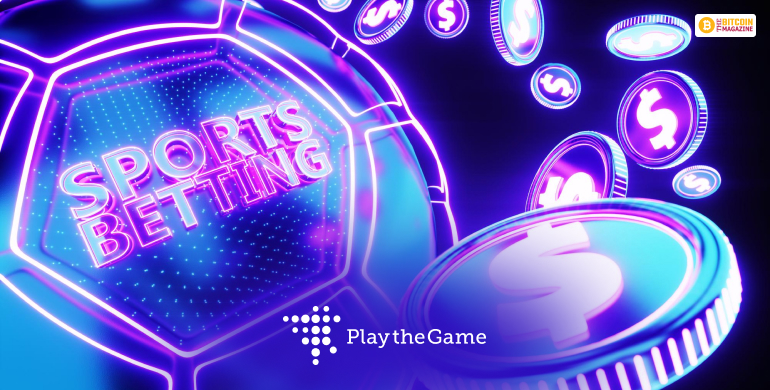Critics often say football clubs are bent on promoting gambling and crypto only. Constant ads pound the stadium crowd, TV, and OTT viewers. Many companies are featured on players’ jerseys, officials’ shirts, perimeter boards, and TV ads.
A recent field study by The Play the Game has scraped off some interesting facts which suggest gambling and betting companies are everywhere in football. You will find brand logos and stickers in places you are not expected to see.
After a detailed study with data regarding partnerships between gambling, crypto, and football clubs, the agency found some shocking facts about the nine most popular football leagues.
The biggest endorsers of gambling and crypto ads are the Big Five of Europe (England, Spain, Italy, Germany, and France). From the rest of the continental confederations, Play the Game found India, Mexico, Nigeria, and Brazil promoting most of these brands.
The English Premier League has 100% of clubs with at least one betting partner. Besides, 80% of clubs have at least one crypto partner, and 70% have at least one crypto betting platform as a sponsor.
Sports Betting and Crypto Companies Have Been Synonymous
Play the Game previously raised the issue of football’s amorous relationship with illegitimate sports betting operators. However, the same problem now arises when crypto betting platforms sponsor the sport.
Often, gambling brands in the guise of crypto brands also sponsor clubs. If you look at the home jersey sponsor of the two popular EPL clubs, Leicester City and Southampton, the problem would become apparent.
The common names, visible on the jerseys, are BC.GAME, declared bankrupt in the Curaca region in 2024, and Rollbit, a self-proclaimed crypto and NFT casino brand.
The next popular name is 1xBet. It is blacklisted in nations including France, India, Romania, and Brazil. Recently, a criminal case was filed against it in Morocco as well. Strangely, the same brand has returned with a crypto-specific gambling agency named 1xBit.
The Markets Exposed To Betting
The report published by Play the Game reflects that all clubs in the EPL and Serie A have betting companies as title sponsors of football clubs. You can also see the same picture in Nigeria.
This 236 million-populated nation is a massive source of footballing talent among all African nations. Simultaneously, it is also a hotbed of sports betting in all of Africa. Around 60 million Nigerians indulge in sports betting. On an individual level, they spend 3,000 Naira each.
The Nigerian Premier League Is Broke?
The Premier League Football is suffering from small funding gaps. There is minimal TV coverage, so there are no major funding sources. Out of the 12 clubs that compete there, 5 have teamed up with sports betting brands, including illegal operators like 1XBet, followed by its sister concern 22Bet, and Stake.
Sadly, the scenario is not limited to Nigeria only. Elsewhere, it is the same. The economically weaker leagues are more exposed to sponsorships from the crypto betting apps. When you come to Asian nations like India, you can see the same picture.
Here, the scams are even trickier. The banned gambling companies are cloning themselves as news services to promote their products, such as Pari Match News.
What’s Happening in The UEFA?
The agency discovered 173 partnership deals with banned or shady betting companies throughout the nine leagues screened by Play the Game and 172 associations with crypto asset companies.
That’s not all. There are around 72 commercial contracts with companies directly linked to crypto betting. These sponsors are sports betting agencies, posing as crypto exchange platforms.
The last released benchmarking report by the EUFA also says the same. UEFA reports that betting and gambling companies sponsor most European clubs.
Deals Not Drawn To Public Knowledge
Some football clubs don’t make sponsorship deals public. For example, you can see how FC Koln was associated with 365 Wanmei, but to nobody’s knowledge until the deal was live!
At the same time, another club, FC Augsburg, made the news when they disclosed their ex-partnership with BOB88. The brand went offline as soon as the deal closed.
These kinds of scenes are also seen across the English clubs. They prefer to keep the partnership hidden when they crack a deal with betting groups. But why is this notion scaling
Experts say there is growing discontent among fans regarding the mingling of football nd gambling.
Chelsea FC has promoted the Yabo-Kaiyun group among the big names. At first, the Leyu brand from the group took over their jerseys. Since 2022, Kaiyun itself has started flashing on their field jerseys.
Betting Companies Posing AS NEWS Services
The latest trend of disguised endorsements is betting and crypto gambling companies promoting themselves as news agencies.
You may refer to the example of sponsorship branding in the Indian football scene.

